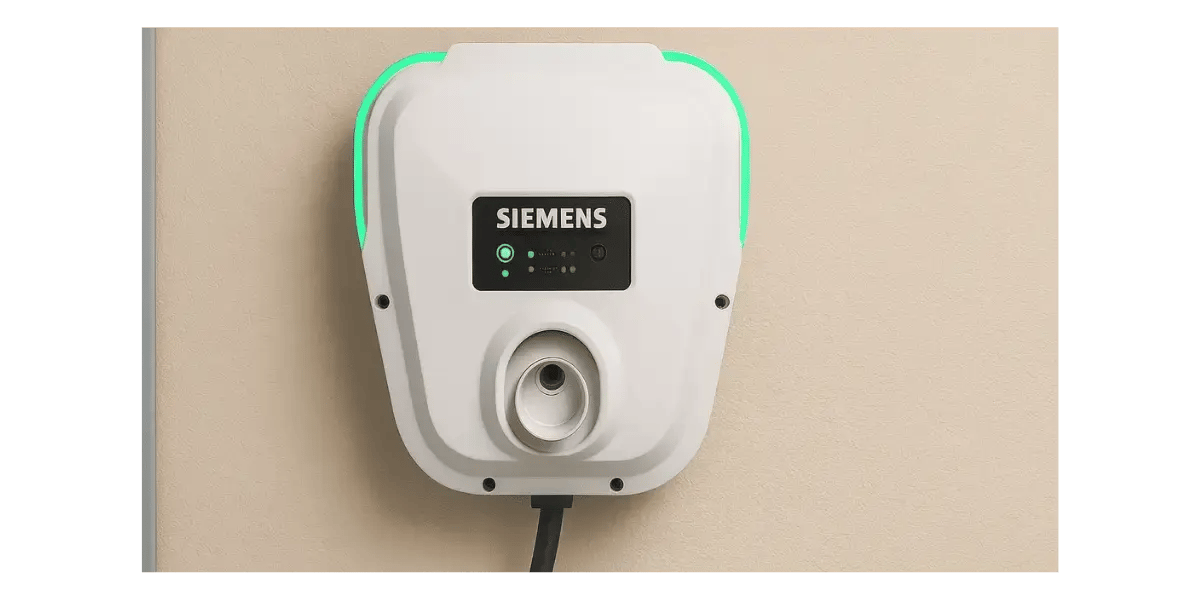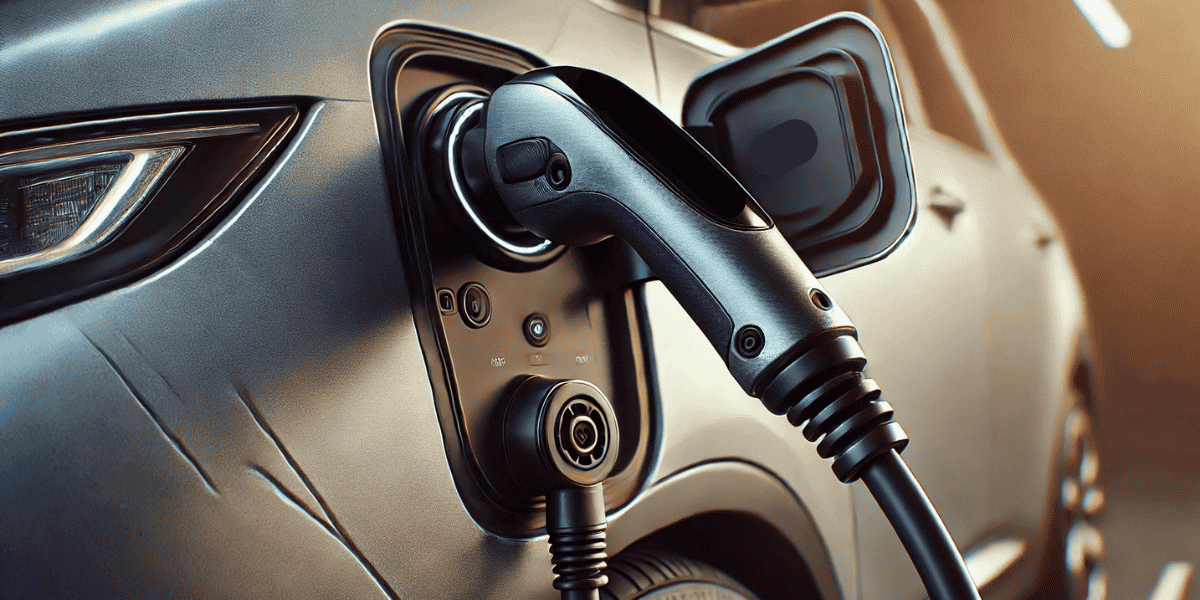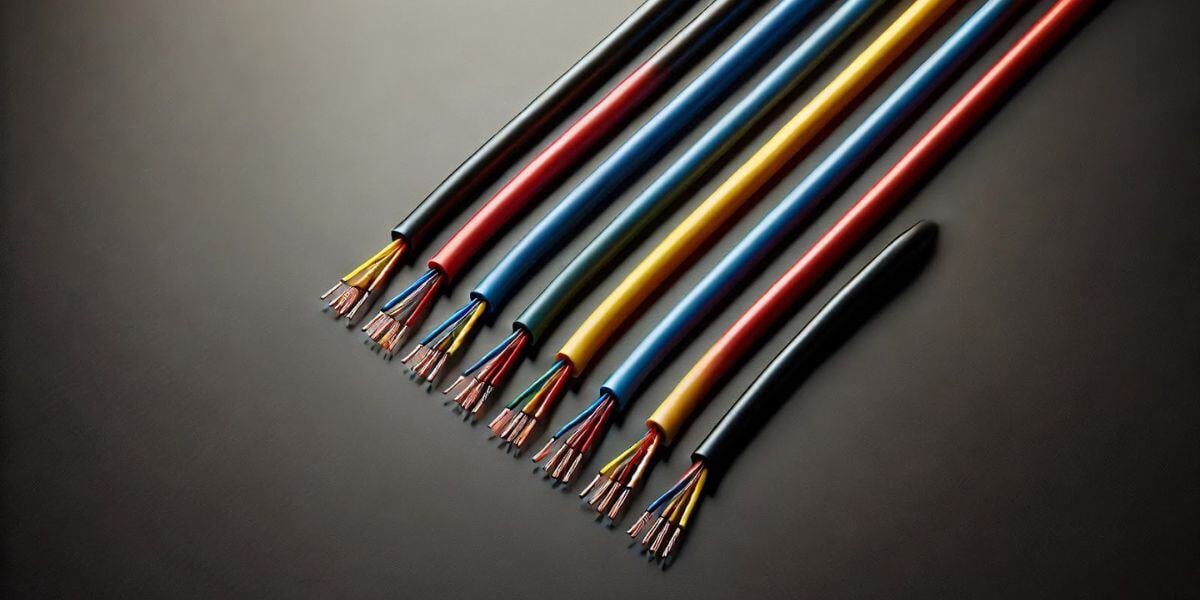Level 1 vs. Level 2 EV Chargers: Which One Is Right for You?
August 14th, 2025
4 min read
By Dustin Ober

You’ve taken the leap and bought an EV. Congrats!
But now it’s sitting in your garage, sipping power from a regular wall outlet... and barely making a dent.
If you’re like most homeowners, you’re starting to wonder: Is this normal? Should it be this slow? Do I need something better?
We get these questions all the time. At Integra Electrical, we help Iowa homeowners understand their options and install charging setups that actually fit their home, lifestyle, and budget. The good news? Choosing between Level 1 and Level 2 doesn’t have to be complicated, and you don’t have to overspend to get it right. Even if your EV looks like a rejected prop from a '90s sci-fi movie, it still deserves a faster charge.
In this guide, we’ll walk you through the key differences, the real-world impact on your daily life, and the questions to ask before upgrading.
Before the end of this article, you’ll know:
- What separates Level 1 and Level 2 chargers
- What to consider when deciding
- The frequently asked questions about EV chargers
Level 1 vs. Level 2 Chargers: What's The Difference?
Level 1 EV Charger
This is the standard home charging method recommended by the U.S. Department of Energy. It plugs into a regular 120-volt outlet, the same kind you use for a lamp or toaster. It’s easy to use, but painfully slow. Expect to gain about 3 to 5 miles of range per hour. That means a full charge could take more than 24 hours, depending on your car’s battery size. For occasional drivers or hybrid owners, it might be enough. For most people, it’s more of a temporary solution than a long-term fix.
Level 2 EV Charger
A Level 2 charger uses a 240-volt circuit, like the one your dryer or oven runs on. It requires professional installation, but in return, you get speed. Most Level 2 chargers add 20 to 30 miles of range per hour, so your EV can fully charge overnight. This setup is ideal for daily drivers, households with multiple EVs, or anyone who wants the freedom to plug in and be ready to go within a few hours.
The Differences
- Charging time: A Level 1 charger can take over 24 hours to fully charge an EV with a larger battery. That’s fine if your car sits in the garage for days at a time. But if you commute, run errands, or share the vehicle, you’ll quickly feel the bottleneck. Level 2, by contrast, can top off your battery in 4 to 8 hours, usually overnight.
- Convenience: With Level 1, you need to plan around your charging time. With Level 2, charging becomes a background task. Plug in at night, and wake up ready to go.
- Energy efficiency and cost: Level 2 chargers are often more energy efficient, which can reduce your long-term electricity costs, especially if your utility offers time-of-use rates for off-peak charging.
Bottom line, Level 1 charging works, until it doesn’t. When your schedule gets tighter or your mileage climbs, speed starts to matter. That’s when Level 2 earns its keep.
What to Consider (and How to Choose the Right One)
Not every EV owner needs a Level 2 charger, but if you're finding yourself frustrated by long wait times or planning to drive more than 30 miles a day, it might be time to upgrade.
Here are the key factors to think through:
- Your driving habits: Do you drive daily? Commute long distances? Share the EV with a spouse? If you need your vehicle ready to go every morning, a Level 2 charger saves time and stress.
- Your home’s electrical panel: Some older homes can’t support a Level 2 charger without upgrades. A licensed electrician can help you determine whether your panel can handle the load or needs an upgrade.
- Where you park: If your EV is parked in a garage with easy access to the panel, installation is usually straightforward. But if you park outside or far from your panel, the cost and complexity can go up.
- Your long-term plans: Planning to buy a second EV? Hoping to increase your home’s resale value? A Level 2 charger is a smart, future-ready investment.
Still unsure? A quick home evaluation can give you a clear answer. We’ll take a look at your setup, walk you through your options, and help you decide what makes the most sense, without pressure.
Frequently Asked Questions About EV Chargers
Can I plug a Level 2 charger into a regular outlet?
No. Level 2 chargers require a dedicated 240-volt circuit and must be professionally installed.
Is using a Level 1 charger bad for my car’s battery?
Not at all. It’s safe, just slow. Both Level 1 and Level 2 chargers meet EV battery charging standards.
How much faster is Level 2 really?
It depends on your vehicle, but most drivers see charging speeds 4 to 6 times faster than Level 1.
Do I need a permit to install a Level 2 charger in Iowa?
Yes. Most cities require an electrical permit. A licensed electrician (like us) can handle that for you.
What’s the cost difference between Level 1 and Level 2 chargers?
Level 1 costs almost nothing upfront, since you can use a standard outlet. Level 2 chargers require installation and equipment, but offer long-term convenience. If you’re curious about what they might cost, read How much does it cost to install an EV charger
Ready to Find the Right Fit?
Choosing the right EV charger is about more than just speed; it’s about convenience, confidence, and knowing your home can keep up. If you're leaning toward a Level 2 upgrade, it's worth taking a closer look at the smart features that come with it. Some are genuinely helpful. Others? Not so much.
Before you decide, check out our article on smart EV charger features, so you can invest in what matters and skip what doesn’t.
Dustin Ober is a licensed electrician on Integra’s installation team. Born and raised in Iowa, he brings four years of licensed experience and five years of dedication to the Integra family. Known by customers as professional and helpful, Dustin is dependable and always shows up ready to help. When he’s not working, you’ll likely find him outdoors—enjoying the same steady calm he brings to every job.
Topics:



.webp?width=1200&height=600&name=FI-EVCharger%20(1).webp)




